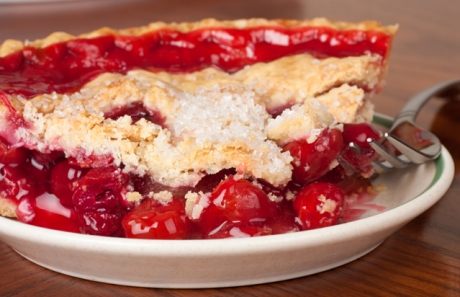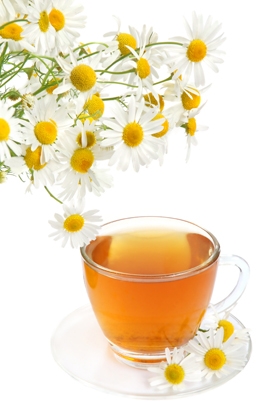9 Foods To Help You Sleep
Stressful, busy days and the constant bombardment of technology can make it difficult to shut off the outside world and get to bed. Instead of reaching for that Ambien or Tylenol PM pill to knock yourself out, try one of these easy and more natural ways to help you fall asleep. Nutritionist Kelly Aronica shares some tips on how to ease yourself into a gentle and peaceful slumber that won't leave you feeling groggy or sluggish the next day (a side effect of many sleeping pills). Plus what to avoid if you're having trouble sleeping.
Aronica says that there's definitely a connection between carbs and the release of serotonin (your body's feel-good hormone) in the brain, so a snack within an hour of bedtime that is mostly carbohydrates with a little protein can boost serotonin levels. Why?
To maximize the release of serotonin (which helps you sleep), you need two things. Tryptophan, the amino acid that is the raw material for serotonin found in protein sources, is one. But if you eat a high-protein meal, all the various amino acid levels go up, and they all fight for entry across the blood-brain barrier, and tryptophan levels actually go down in the brain. When you eat carbohydrates (the second thing you need), the body releases insulin whose job it is to put excess glucose, amino acids, and fatty acids to work or into storage. So when there's insulin in the blood, it empties out of all amino acids except for tryptophan, clearing the way for tryptophan to enter the brain.
So what's the bottom line? Try eating a light meal with a little protein and a little carbohydrate within an hour of bed. (It takes about an hour for serotonin levels to go up after a meal.) Try toast with peanut butter, half an egg salad sandwich, or some of the ideas below.
A good snack to have before bedtime because it combines carbohydrates with protein.
Yogurt
A great food because it's about half carbohydrates and half protein.
Eat this with some pita for a perfect mix of both protein (from the chickpeas) and carbohydrates.
Warm Milk
Has tryptophan, and there's also the soothing aspect of sipping a warm beverage.
Contain tryptophan, melatonin, seratonin, and magnesium, which can act as a muscle relaxant. Try them with some peanut butter and toast.
While it's a well-known source of tryptophan, almost any type of poultry has similar amounts of it. Try eating half a turkey or chicken sandwich.
Contain both tryptophan and carbohydrates, so eating a few as a small snack before bed could help you sleep.
Have both tryptophan and magnesium, so you could also try adding these to your oatmeal.
Contain melatonin, which helps regulate sleep. These are the sour ones used in pies, not so much the sweet Bing cherries that you can eat plain. (Photo courtesy of Istock/chas53)
Herbal supplements
Valerian: 600 milligrams an hour before bedtime helps some people, but give it a full month to be effective.
Melatonin: Is a hormone that works for short term sleep issues such as those from jet lag or for people whose circadian rhythms are out of whack. It doesn't seem to be super effective for other kinds of insomnia.
St. John's Wort: This is relatively safe to try, especially at low doses, but in some cases it can interfere with other: medications (some antidepressants), so check with your doctor before taking it.
Is very safe, and though it won't put you to sleep like a sleeping pill will, it's relaxing and gentle. (Photo courtesy of Istock/eAlisa)
Foods to Avoid
Caffeine, spicy foods, heavy meals, alcohol right before bed, and some medications may contain caffeine so check your prescription.
People think of alcohol as a sedative, and it does cause an immediate drowsiness. But it leads to bad quality sleep that won't leave you rested. Try avoiding all caffeinated beverages after one in the afternoon. Even a three o'clock pick me up could still be causing sleep trouble at night.
The other thing to throw in here is gas-producing foods, which might cause some people to lose sleep. Everyone's sensitivity to these foods is different, but some common gas-producing foods are: apples, broccoli, Brussels sprouts, cabbage, cauliflower, legumes, lentils, split peas, and green peppers. Try avoiding these foods after lunch time. Also, the size of the meal can impact sleep, like large evening meals can cause sleep disturbances. If getting to sleep is an issue, make your biggest meal at midday and have a lighter dinner.
As a final note, Aronica says that meditation is also a great way to relax both the brain and body. Since stress is the number one reason for insomnia, meditation and yoga can be great for helping in that area. Just be sure the yoga is not strenuous at night because activity that gets you moving can sometimes be counterproductive in inducing sleep. Exercise earlier in the day is really important. You can also try taking an Epsom salt bath. These magnesium salts allow magnesium to be absorbed through the skin, and the relaxing effect of the magnesium as well as the soak in hot water can help sleep.
Originally published 4/5/2011.
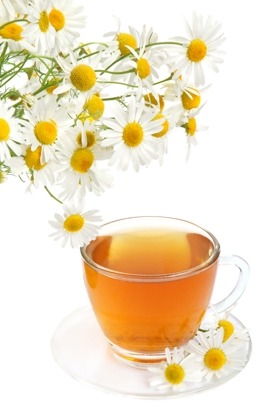
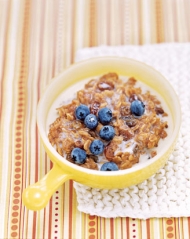
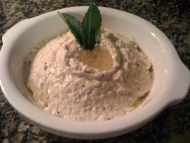 Hummus
Hummus 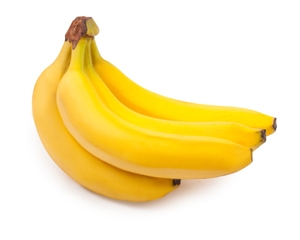
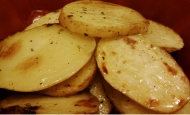 Potatoes
Potatoes